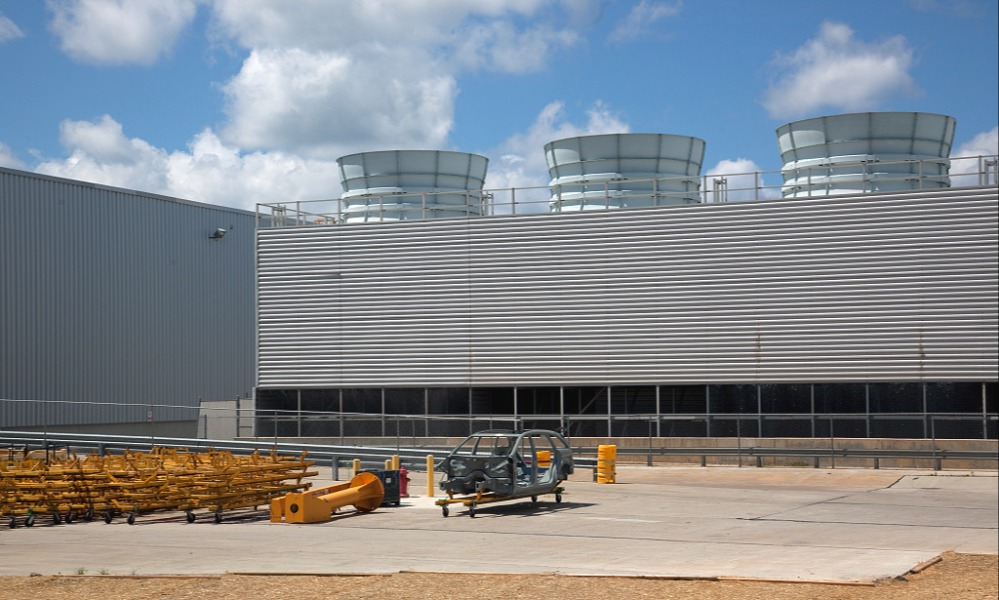The Search for Hope and Safety
We are told that EU officials are only now discovering that most of the “refugees” whom they had welcomed into their countries are actually not refugees at all, but are, in fact, the long heralded and dreaded economic migrants: those hideous creatures whose eventual appearance onto the historical scene has long been predicted by certain sociologists and economists.
Published by The Lawfare Institute
in Cooperation With

We are told that EU officials are only now discovering that most of the “refugees” whom they had welcomed into their countries are actually not refugees at all, but are, in fact, the long heralded and dreaded economic migrants: those hideous creatures whose eventual appearance onto the historical scene has long been predicted by certain sociologists and economists. Yes, those end-of-days creatures are now pouring into Europe, following the same treacherous trek as refugees. But they are not in search of mere safety, as the refugees seek, but rather better economic opportunities, ones that are not available in their countries of origin, for whatever reason.
The impulse to separate economic migrants from real refugees is understandable to a point. Many people feel compassion for the plight of refugees and want to try to accommodate them, even if only on a temporary basis or until circumstances allow them to return home. But they resist the idea of affording economic migrants that same benevolent treatment. The burden of this group’s economic expectations, they suggest, is something their own governments, not ours, should shoulder—even if those governments happen to be unfair, unrepresentative, and incompetent at economic management. If our doors are open to migrants from North Africa, Europeans wonder, why not to every person in the world who thinks quite rightly he would have a better life here?
The problem is that people are not so reasonable when it comes to managing their expectations and sitting still for their allotment in life—accepting that being born in Algeria or Tunisia does not confer the same opportunities as being born a boat ride away in Italy. Nor do human expectations neatly sort into separate packages—the economic versus the political—to be handled by different agencies. Nor are our destinies, or our economics, so separate that the impact of certain developments “there” can be kept “there.”
Things have always been far more complex than that. In the modern globalized world, there is no Las Vegas principle—what happens there does not stay there.
First, it should be clear by now that we cannot neatly separate conflict refugees and economic refugees. For instance, those refugees leaving Turkey and taking the treacherous path across the Mediterranean and the Balkans into Western Europe are not doing so because their lives are under a physical threat in Turkey. Indeed, once they have crossed the borders into Turkey, they no longer face immediate danger. But staying in Turkey affords very limited prospects. It is not always clear whether migrants realize this on their own, or if they are encouraged to reach this conclusion by Turkish officials wishing to pressure Europe. And the line between physical safety and economic aspirations is often blurred. Are these people economic migrants or are they refugees—or both?
People who occupy the lowest rung of Maslow’s hierarchy of needs still harbor the same dreams and expectations of those who occupy the top rung. Not only there is nothing unnatural or immoral about that, it is the very thing that makes us human. It’s perfectly possible, in other words, to flee to safety and to the possibility of a better life. Indeed, looking at economic refugees as a lesser class of refugees—as the law tends to—ignores not only the bulk of human history, but human nature itself. People will not respect geographic boundaries when their lot in this life is at stake. The tendency is problematic from any state’s point of view; one shouldn’t begrudge Europeans’ legitimate concerns in this regard.
But knee-jerk reactions, in the form of populist anger and fear-mongering, are bound to make the situation worse, as they tend to usher in demagogues whose agendas go far beyond the issue of migration and diversity. What’s more, through their appeal to emotions and willingness to manipulate (if not invent) “facts,” these demagogues leave little room for real debate. By now, however, these populist figures and movements have already joined the political and social stage, taking advantage of the democratic process. Dealing with the challenges these perspectives pose, therefore, will not be easy. Serious politicians cannot pander to popular prejudices and misconceptions, as these figures are so willing to do. However, they also cannot dismiss their electorates who voice certain legitimate concerns as well.
The mixed messages now sent to refugees is also problematic, as countries experiment with different approaches and policies to address the situation, incorporating a variety of social, economic, and political considerations along the way.
Germany is a case in point: not long ago, German Chancellor Angela Merkel rolled out the red carpet for refugees, especially those coming from Syria and Iraq. But now, after the Cologne mass sexual harassment episode and the backlash it engendered, she is backtracking and now says that refugees should return home after the Islamic State is defeated.
From a political perspective, this reversal is understandable. But the reality remains that this is simply not a satisfying response. ISIS’s defeat is years away, and much can happen in the interregnum to alter the domestic situation for refugees in Germany—for better or for worse, depending on the practical policies introduced now. People will get married. They will have children. They will get jobs to which they will become essential. Large migrations of people across continents don’t just go back.
There is a need for a far more honest conversation in Germany and Europe-wide. Measures like seizing refugees’ valuables to defray the costs of their accommodation—as is happening in Denmark, Switzerland, and Germany—might emotionally satisfy some domestic constituency, but they are ultimately ill-considered and punitive in nature. Furthermore, it makes little impact to the actual costs, while going a long way to further alienating the refugees and make them feel unwelcome. When one country adopts this kind of policy, it may create a financial incentive for refugees to go elsewhere. But when lots of countries do it, it becomes just a punitive tax on migration. And even the deterrent effect is minimal; most refugees have so few possessions in the first place. As such, these policies work to create resentment without having the intended practical impacts: the refugees will stay, though many of them will be resentful rather than appreciative. Ultimately, they will be neither integrated nor given enough reasons to leave.
When it comes to issues of integration, we must move beyond simple epithets and the related expectations and assumptions. This is not a question of “good,” “well-behaved,” and “well-intentioned” refugees versus “bad,” “misbehaving,” and “extremist” refugees. Rather, we are dealing with a large demographic comprised of hundreds of thousands of people whose behavior will run the gamut of the human experience—the good, the bad and the ugly. In short, there will be all kinds of people here, and historical precedent and geopolitical realities mean few will ever leave. Even when ISIS is defeated, would you rather live in Iraq or Denmark?
As such, managing the expectations and needs of refugees is as important as managing those of the nationals who now host them. Surely, some refugees might have controversial views or criminal tendencies, and cultural differences may manifest in objectionable ways. A successful integration strategy must account for this. And while populist parties’ fear-mongering might score some local victories, the long-term benefits will accrue to those parties which implement inclusive and realistic visions.
Certainly, inclusion is only a solution where the refugee phenomenon remains containable; the size and rates of refugee inflows will have to stay within manageable limits to allow for effective integration policies to take root in host countries. And controlling the size and rates of refugee flows, in turn, calls for a more effective response to the push factors involved in these migrations.
Conflicts are not only push factor to worry about. Over the coming decades, environmental disasters—including water shortages and drought—and the collapse of economies based on fossil fuels, paired with continuing problems of governance and human rights are expected to fuel state implosions and conflicts in a variety of regions. These, in turn, are bound to lead to mass demographic dislocations. Few countries around the world will be able to shield themselves from the consequences, no matter the security risks or considerations of social stability, nor economic and political costs of migration.
No one can stem the tide completely, but managing the numbers requires being comfortable with a measure of interventionism in certain countries and regions. We cannot examine this problem simply through the prism of imperialism and anti-imperialism. We have to look at it also through the lens of humanitarian concerns, in terms of the future of Europe and NATO, through the prism of the rise of illiberal powers; other concerns are bound to weigh heavily in the debate as well.
There are those in United States and Europe who seem to think that their countries can barricade themselves behind walls—physical, technological, and psychological—and by constantly patrolling seas and oceans to turn them into moats separating a fortified fortress of civilization from the barbarian hordes coming from less developed countries. But these approaches are unrealistic and shortsighted, and fail to account for the domestic tolls of such policies. Ultimately, the approach is based on a strategy of ignoring the problem and hoping that it will just go away. When has this ever worked? What wall held the barbarians at bay forever?
The search for hope and safety has never been restricted to refugees and migrants; it is quest common to all humanity. The current phase of our geopolitical development calls for a more honest and open debate on the matter before we find ourselves facing the flood with no plans at all.





